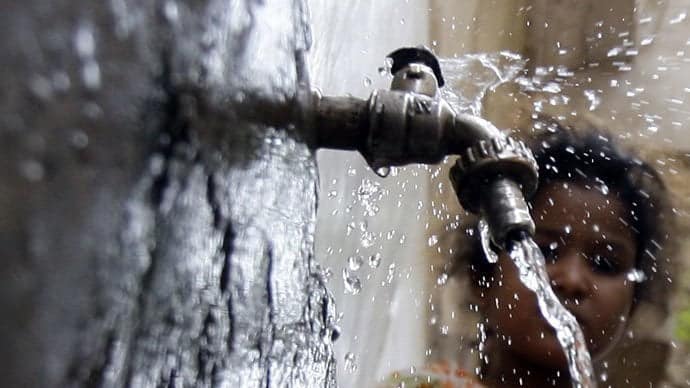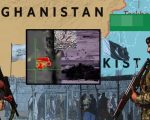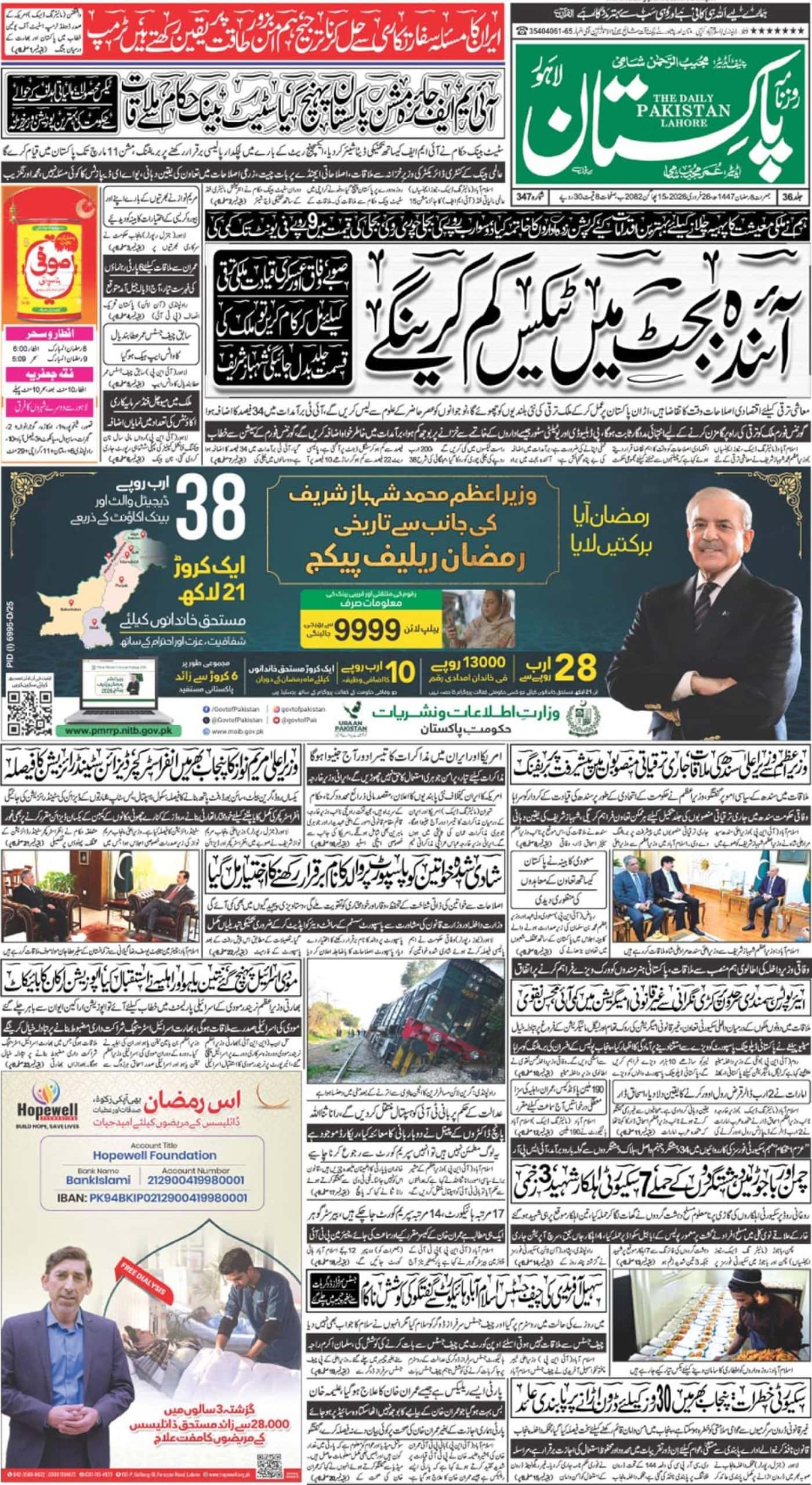The World Economic Forum (WEF) ranked extreme weather as the top risk on a global scale in 2024. According to the Global Climate Risk Index (GCRI), Pakistan is recognized as the 8th most vulnerable country to the climate crisis on Earth. Over the last two decades, the country’s significant floods have doubled as the monsoon season becomes more erratic. For example, in 2022, Pakistan was devastated by the worst flooding in its history, leaving around a third of its land under water. The deluge hit all four country’s provinces, killing over 1,700 people and impacting 33 million more through the loss of infrastructure, homes, livelihoods, livestock, and crops.
Considering Pakistan’s increasing water scarcity, vulnerability to climate change, and limited water storage capacity (30 days), there is an urgent need to manage these climate-related risks better and plan adaptations for improving water usage at national, provincial, and local levels. Pakistan’s population in 2023 reached 241.5 million, significantly increasing from 207.7 million in 2017. At the same time, the population of Islamabad has risen from 2.0 million (2017) to 2.36 million (2023). The rapid population growth has led to increasing water demand and worsening the water security situation across Pakistan.
Groundwater provides over 90% of drinking water to all major cities, including Rawalpindi and Islamabad Capital Territory, often called the “twin cities.” At the time of the establishment of Islamabad in 1960, the groundwater table was around 10 m, which is declining at a rate of 1.0 m per year due to the massive extraction of water for the population’s and industry’s growing needs. Similarly, the groundwater depletion in Rawalpindi is 2.5 m per year. Ensuring long-term potable water supplies is also a severe concern in twin cities. The gap between demand and supply is anticipated to increase manifolds to meet the future demand of a rapidly growing population.
Accordingly, the pressure on precious groundwater resources will increase, which is already scarce. Nature-based solutions (NBS) have the potential to deal with climate shocks faced by vulnerable people living in twin cities. For example, IWMI and PCRWR, with the funding support of WaterAid, established the first state-of-the-art fully instrumented rainwater harvesting site in Kuchnar Pak (I-8), Islamabad, that recharged 10.35 million gallons of water during June 2022 and August 2023 leading to mitigate flood damages downstream in Soan river. Similarly, PCRWR, in collaboration with the Capital Development Authority (CDA), has installed 80 rainwater harvesting sites in Islamabad, recharging around 42 million gallons over a year (2022-23). Introducing these NBSs helps improve water security in the twin cities. As a result of joint adequacy efforts of PCRWR and IWMI, the CDA has made an amendment in their building by-laws that makes it mandatory to establish rainwater harvesting facilities for all new houses in Islamabad.
To tackle these complex surface and groundwater management challenges and improve water governance, WWF-Pakistan and IWMI are working in partnership with the communities, civil societies, and local governments to develop climate-smart and climate-resilient water management solutions leading to measurable improvements toward sustainable water use in the twin cities under the Australia-Pakistan Water Security Initiative (APWASI) project funded by the Australian Government in 2021. Australia’s system-level water management approach, i.e., ‘Water Sensitive Cities (WSC)’, was adopted at two disadvantaged urban communities, one in each of the twin cities, to demonstrate the WSCs approach. The IWMI team also works with the communities to achieve the project vision of improving water security, livability, and climate resilience in Islamabad and Rawalpindi.
Under the APWASI project, three piezometer sites have been successfully established (2 at Farash Town and one at James Town), equipped with CTD divers to monitor groundwater to understand the often overlooked underground aquifer dynamics (Figure 1). These sites are fully operational, with the CTD divers furnishing continuous data on critical parameters such as depth to the water table, salinity, and temperature daily. The data analysis shows a net recharge of around 2.0 meters in Farash Town (Islamabad) and net depletion in James Town, which indicates a more significant abstraction than recharge. Dedicated community awareness sessions have been organized at Farash and James Towns to educate about the prevailing trends of groundwater recharge and depletion in their regions, emphasizing the importance of adopting water conservation practices to foster water resilience (Figure 2). We are developing a groundwater model to simulate groundwater balance and assess the impact of various NBS interventions. This enables the evaluation of ongoing recharge interventions introduced in the twin cities and the development of sustainable groundwater resource management strategies.
Lastly, the IWMI team conducted a climate change impact assessment based on a multi-model ensemble of bias-corrected data from statistically downscaled global climate models for Frash and James towns and the Pindi Basin. This assessment aims to quantify climate extremes’ impact on future water availability under the global warming levels (GWLs) of 1.5°C, 2.0°C, and 3.0°C. The results show a definite warming trend and shifting precipitation patterns in future climates under different global warming levels. Temperature anomalies for all GWL periods show an increase in winter compared to summer. These temperature and precipitation changes can have enormous implications for the James and Frash town and the greater Pindi basin. The results show that irrespective of the GWL achieved, increases in extreme events related to climate change are inevitable, even for the lowest GWL level of 1.5°C. Therefore, adaptation and mitigation through cross-sectoral cooperation have become imperative. Building and maintaining water storages, improving water use efficiency, continuous groundwater recharging, and overall improving water management in the region are vital at this stage to mitigate the adverse effects of the predicted impacts of climate change on water resources. Based on the outcomes of the interventions and in consultation with the stakeholders, strategies are being developed to enhance community resilience to climate change and other water-related shocks in twin cities and other urban areas.

Figure 1: Data downloading from the CT divers installed in the project area.

Figure 2: Awareness-raising activities in the project area
The principal author is a Country Representative for International Water Management Institute (IWMI) in Pakistan. He can be contacted at @drmohsinhafeez. The views and opinions expressed here are those of the authors and not those of IWMI or its funders.
Dr. Umar Wqas Liaquat, Naveed Iqbal, Sidra Khalid, and Muhammad Ashraf contributed to this article.














